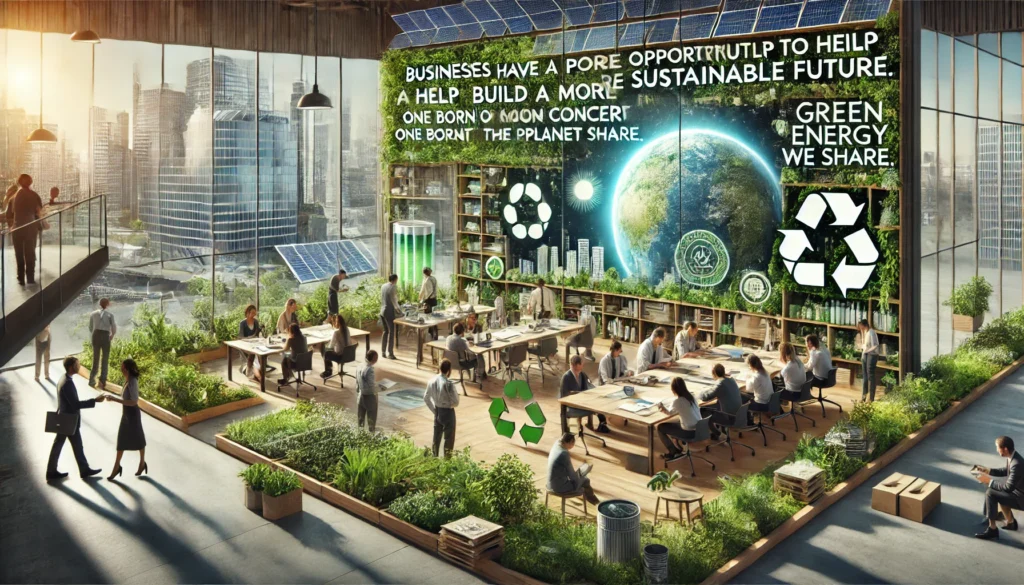To Begin: What is Green Marketing?
Green marketing, also known as sustainable marketing or environmental marketing, refers to the practice of promoting products or services that are environmentally friendly or sustainable. It involves incorporating eco-friendly attributes into various aspects of marketing, including product design, packaging, distribution, and promotion. The goal of green marketing is to encourage consumers to make environmentally responsible purchasing decisions while also benefiting the environment.
Benefits of Green Marketing
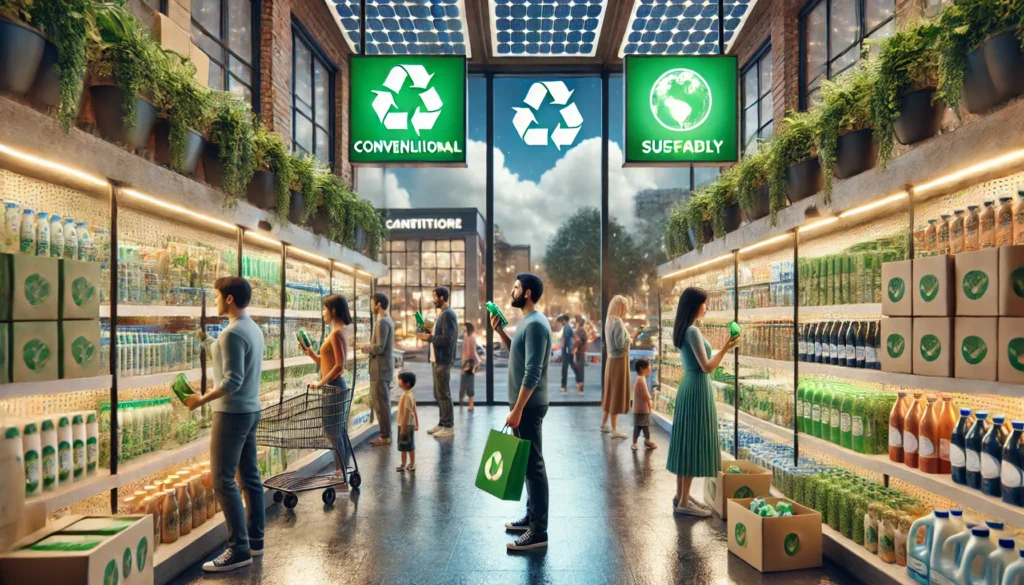
As a business, there are a plethora of benefits that you can obtain by adopting green marketing strategies. These approaches not only enhance brand reputation but also drive customer engagement andcontribute to a greener future.
- Competitive Advantage: Adopting green marketing strategies can differentiate businesses from competitors and attract environmentally conscious consumers.
- Cost Savings: Implementing sustainable practices can lead to cost savings through reduced energy consumption, waste, and resource usage.
- Brand Loyalty: Demonstrating a commitment to sustainability can build trust and loyalty among customers, leading to long-term relationships and repeat business.
The benefits extend beyond your business, but your customers will benefit as well. By supporting companies that prioritize sustainability, customers contribute to environmental preservation and promote a healthier planet for future generations.
- Environmental Impact: Customers can feel good about supporting businesses that prioritize sustainability and environmental responsibility.
- Health and Safety: Green products often promote healthier and safer lifestyles, contributing to improved well-being.
- Transparency: Green marketing encourages transparency and accountability, empowering customers to make informed choices about the products they buy.
Green Marketing Strategies That Drive Sustainable Success
In this section, we’ll discuss the top strategies for green marketing. We will take a look at some effective approaches to promote sustainability and drive environmental impact through innovative marketing initiatives. We’ll also explore a range of proven strategies tied to brands you know, designed to enhance brand reputation, engage eco-conscious consumers, and foster a greener future.
Circular Economy Initiatives
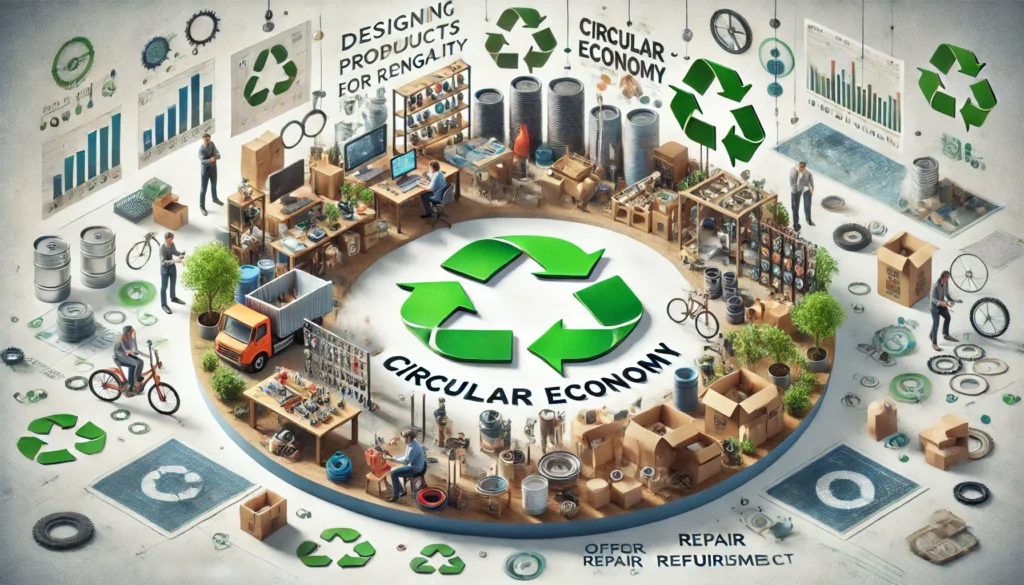
Circular economy initiatives involve designing products for longevity and recyclability and offering repair and refurbishment services to reduce waste.
Patagonia, a renowned outdoor clothing company, embraces circular economy principles by offering repair services for its products. Through its “Worn Wear” program, Patagonia encourages customers to repair and refurbish their clothing, extending the lifespan of their garments and reducing environmental impact.
Carbon Offsetting Programs
Carbon offsetting programs involve investing in renewable energy projects or reforestation initiatives to offset carbon emissions and communicating these efforts transparently to customers. Microsoft is a leading example of a company embracing carbon offsetting programs. Microsoft invests in renewable energy projects and reforestation initiatives to achieve carbon neutrality by 2030. The company transparently communicates its sustainability efforts through annual sustainability reports, demonstrating its commitment to environmental stewardship.
Water Conservation Campaigns
Water conservation campaigns aim to promote water-saving practices among employees and customers, implementing water-saving technologies, and offering incentives for reducing water usage.
Unilever, a multinational consumer goods company, implements water conservation campaigns across its brands like Dove and Knorr. Through initiatives like the “Waste Less, Save More” campaign, Unilever educates consumers about water-saving practices and implements water-saving technologies in its production processes.
Urban Greening Projects

Urban greening projects involve partnering with local communities to fund and implement projects such as rooftop gardens and tree planting initiatives to enhance public spaces and promote environmental stewardship.
Google collaborates with local communities to support urban greening projects like the development of the “Green Loop” in Portland, Oregon. This initiative enhances public spaces by creating urban green spaces and pedestrian-friendly infrastructure.
Plastic-Free Initiatives
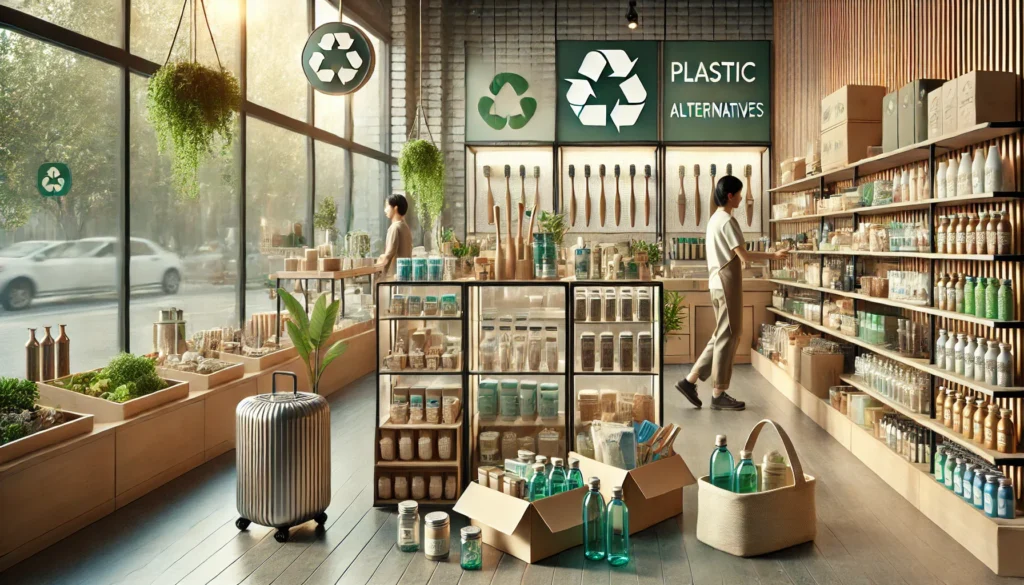
Plastic-free initiatives focus on eliminating single-use plastics from product packaging and operations, offering refillable or reusable alternatives, and incentivizing customer participation through discounts or rewards.
The Body Shop commits to plastic-free initiatives by offering refillable alternatives for products like shower gels and shampoos. The company incentivizes customer participation through discounts on refill purchases, aiming to reduce plastic waste and promote sustainable packaging solutions.
Biodiversity Protection
Biodiversity protection efforts involve preserving natural habitats, sponsoring wildlife protection programs, and implementing sustainable land management practices.
Interface, a global flooring company, supports biodiversity conservation through its “Mission Zero” initiative. The company focuses on sustainable land management practices and habitat preservation, highlighting the importance of biodiversity in its marketing campaigns.
Fair Trade Certification
Fair trade certification ensures fair wages and working conditions for producers and educates consumers about the social and environmental benefits of supporting fair trade practices. Starbucks obtains fair trade certification for its coffee sourced from developing countries. The company educates consumers about the benefits of fair trade practices, emphasizing its commitment to social responsibility and sustainability.
Green Transportation Solutions
Green transportation solutions involve investing in electric or hybrid vehicle fleets and offering eco-friendly transportation options for employees.
IKEA invests in electric vehicle fleets for transportation and delivery services, reducing carbon emissions associated with its operations. Additionally, IKEA offers eco-friendly transportation options for employees, such as bike-sharing programs, promoting sustainability within the company.
Zero-Waste Events
Zero-waste events focus on implementing composting, recycling, and waste reduction measures, and partnering with vendors committed to sustainable practices.
Adobe organizes zero-waste events by implementing composting, recycling, and waste reduction measures. The company partners with vendors and suppliers committed to sustainable practices, promoting eco-friendly alternatives at its events.
Carbon Labeling
Carbon labeling provides consumers with information about the carbon footprint associated with products, encouraging informed purchasing decisions and incentivizing companies to reduce emissions. Nestlé introduces carbon labeling on its products to provide consumers with information about the carbon footprint associated with production and distribution. This initiative aims to encourage informed purchasing decisions and incentivize companies to reduce emissions
Green Marketing: Paving the Way for a Sustainable Business Landscape
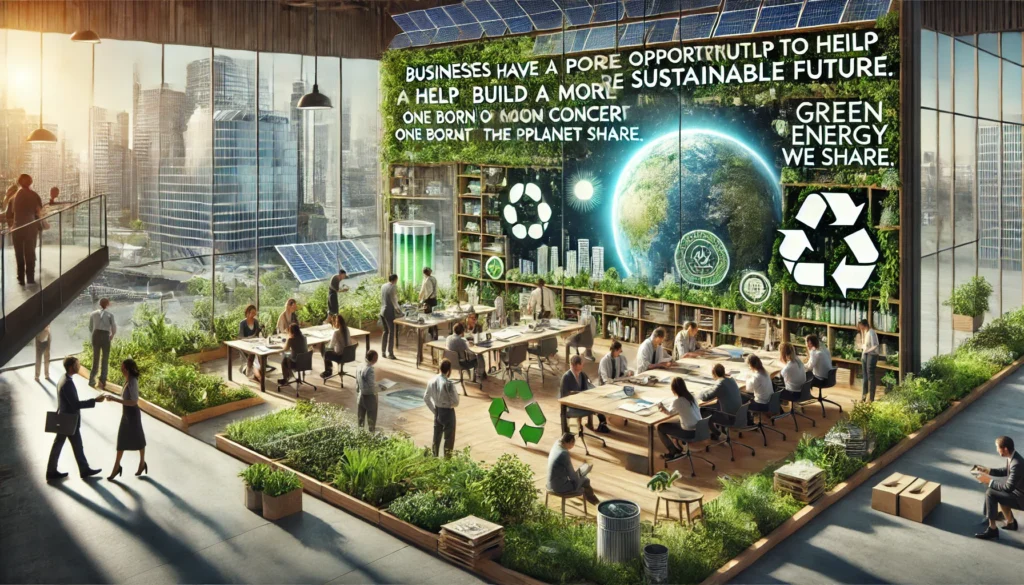
In closing, the journey toward a sustainable future through green marketing is not just promising; it’s essential for the well-being of our planet. As businesses embrace circular economy practices, carbon offsetting programs, and water conservation campaigns, they not only enhance their brand reputation but also enact real change for our environment. Likewise, consumers benefit from supporting
environmentally conscious companies, contributing to environmental preservation and healthier living. Tim Cook, CEO of Apple, succinctly remarked, “Businesses have a profound opportunity to help build a more sustainable future, one born of our common concern for the planet we share.” Every click, share, and purchase has the potential to shape our world.
Want to boost your business with green marketing? Contact us here! Our team will help you attract eco-conscious customers and grow sustainably.

